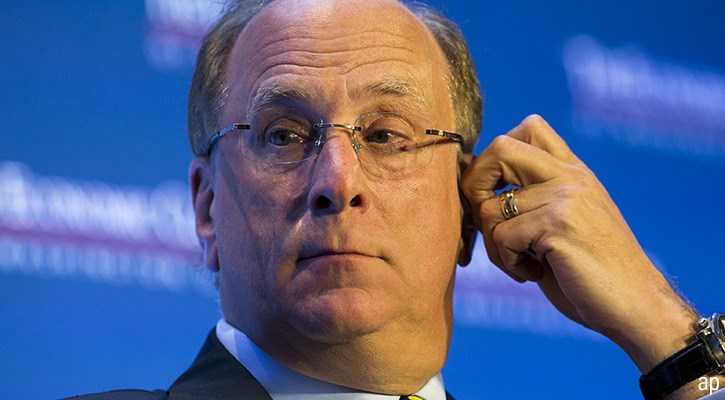
I was worrying about writing my first column of the year, as I only wanted to write something if it was going to add value. Thankfully inspiration has struck, and I have two people to thank for it.
The first is Matt Aitchison, a chartered financial planner at a financial advice business in Bedford, who this week took to Twitter to explain his disgust at discovering that two new clients of his had not heard from their previous financial advisers since March 2020.
The second is a colleague, Morningstar Italy editor Valerio Baselli. Two days ago he highlighted that the financial goals we set ourselves sometimes fail to match our “true” values and priorities.
To that end, if you are among the 16% of Britons who make New Year resolutions (but feel as though you are running out of time to come up with one), I have one for you: sack your financial adviser, and get a better one. There are five reasons you may want to do this.
They Haven’t Been in Touch Since Covid-19 Kicked Off
As long ago as it feels, the market slump of 2020 was a hugely significant event that tested financial professionals the world over. No more so than in the UK, where evidence suggests many advisers had to put business projects on hold to deal with their existing clients’ portfolio drops, send 10% letters, and provide some all-important emotional reassurance to people desperate to sell. I’ll be frank: if what Matt is saying is true, that’s pretty shocking, not just because of that event, but because of the myriad other events that have unfolded since. As investors nurse a hangover from 2021’s equity party, advisers now have their work cut out to manage clients’ expectations. If yours has not seen fit to do either, it may be time to move on.
They Haven’t Even Asked You About ESG
As Morningstar’s director of sustainable investment research Hortense Bioy reminded me this week, the European Union is ploughing ahead with its sustainable finance directives. 2020 was the year that finally put to bed the notion that investing sustainably means lower returns, but just because some of that hype has now worn off does not mean ESG investing is any less important. On the contrary, this year promises even higher flows into such strategies, and potentially even greater shareholder activism. If your adviser has not highlighted this already, they are almost certainly unprepared for the moment when they will be forced to.
They Don’t Challenge You About Your Ideas
Some advisers may think that the “suitability” (as its known in regulatory circles) of their recommendations can be determined solely by them doing what you ask them to. Not so. An adviser’s job is not necessarily to be a yes-person. Rather, the best financial planning relationships will involve very personal conversations. They should (gently) challenge you on your assumptions, ask intelligent questions, and really get to know who you are as a person. You may be intrigued by an asset class. You may suddenly want a new garage conversion. As Valerio said this week, what we think we want is not always what we actually want, and nowhere is that truer than with money. If you do not feel the adviser is personally invested in helping you understand your goals (and understand yourself), consider getting rid.
They Haven’t Updated Their Website Since 2016
Sounds petty doesn’t it. Hear me out. While not necessarily a reason on its own, an-up-to-date, modern, and carefully curated website shows you three things about your adviser. One: whether they find their clients via the internet or not, they appreciate that most people’s first (or last!) impression of a business will probably happen online. Second, and this applies particularly to bigger businesses: they are team players. The modern financial advice business does not function without expert compliance, administrative, and management personnel. An up-to-date website is the perfect opportunity for advisers to prove it, show that it is indeed a team effort, and convey a professional image.
Finally: the business is run by human beings. It should not be too much to ask to be able to find out just a little bit of information about the people behind the brand, and what matters to them outside of work. If all the site really features is a privacy policy and a “blog” page with a newsfeed that’s not been updated since the Brexit vote, it may be time to leave.
You Don’t Feel Like You’re Getting Good Value
All of the above feeds into one topic: value.
Time and time again, we are reminded price is very different from value. I should not dictate how much you should be paying your financial adviser. If you’re paying for a more expensive version of financial planning with more expensive funds, technical bolt-ons, or a very flashy service, and you’re satisfied with it, then fair enough. That said, make sure you’re not being ripped off. It’s sensible to assume your financial adviser will cost you hundreds of pounds a year, and possibly thousands in certain cases. But they should in turn be saving you money in the process, either in tax, higher fees you might’ve incurred elsewhere, or from very simple but remarkably costly mistakes (like selling at the wrong time). Don’t forget: you can (and should) ask them to explain the value they feel they bring to the relationship.
Overall ...
It barely needs saying that financial decisions can feel overwhelming, but, overall, it’s worth remembering you are the master of your own destiny. Better still, if you are unhappy, there are plenty of brilliant advice firms out there vying for your business. Finding one of them might just be your proudest achievement this year.
Ollie Smith is UK Editor at Morningstar





























